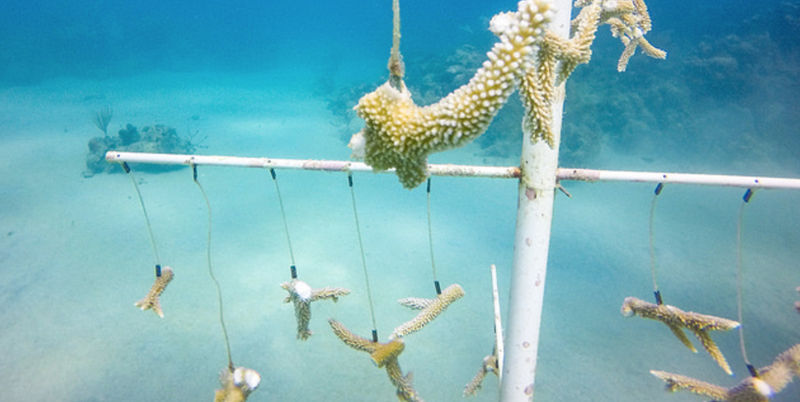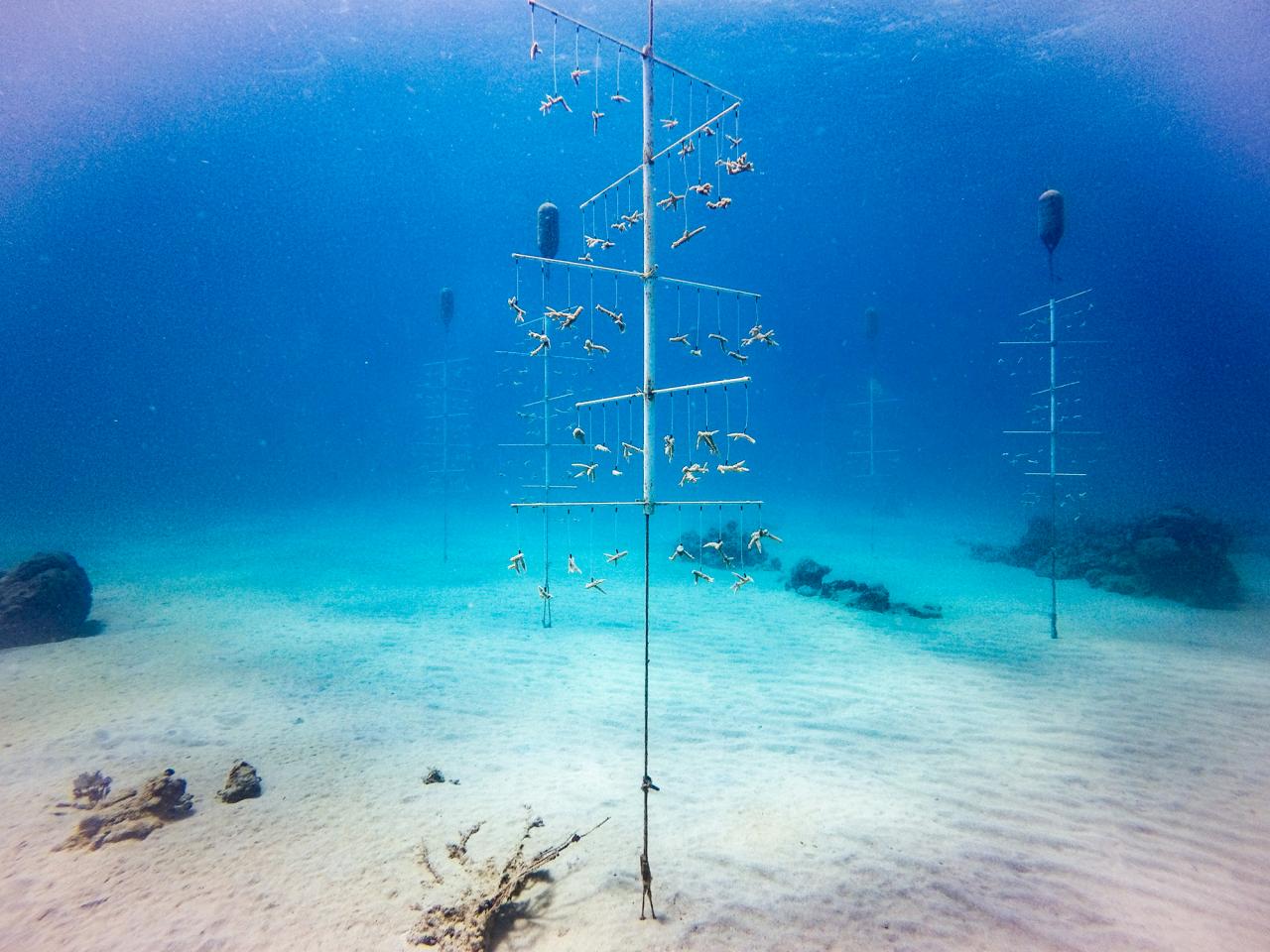Coral Restoration in St. Croix
Ocean First Jul 05, 2022

 We hear a lot of doom and gloom stories about how the ocean's coral populations are in serious trouble due to climate change. The good news is that there are a lot of people working hard to fight back against the odds and help restore the coral, including the people at the Coral Restoration Foundation (CRF) in St. Croix. In May of 2018, Ocean First and a group of divers led by Mark Duvall traveled to the Caribbean island to put their scuba skills to use doing hands-on volunteer work for CRF.
We hear a lot of doom and gloom stories about how the ocean's coral populations are in serious trouble due to climate change. The good news is that there are a lot of people working hard to fight back against the odds and help restore the coral, including the people at the Coral Restoration Foundation (CRF) in St. Croix. In May of 2018, Ocean First and a group of divers led by Mark Duvall traveled to the Caribbean island to put their scuba skills to use doing hands-on volunteer work for CRF.
Propagating coral is a lot like propagating plants: when done correctly, living coral can be fragmented into smaller pieces that are able to grow into independent coral colonies. Eventually, these colonies can be transplanted on a reef and will continue to naturally spawn. This method shaves years off the amount of time restoration takes to happen naturally, and helps kick-start a reef's recovery process.
As you can imagine, this process takes a lot of manpower, which is where volunteer divers like the ones from Ocean First come in. The type of work depends on the season and water temperature. For example, coral are actually transplanted when the water is cold cooler around 78 degrees, but when the water is warm 80 degrees and above, the coral are best left alone and instead need help keeping the algae at bay.
After an orientation classes with Lisa, our volunteer divers were set off to task cleaning the coral trees with brushes, 3m scrubber pads and picks.
 In between these volunteer diving sessions, our divers had the chance to fit in some recreational dives. During these dives the volunteers were able to see many places where the corals had been reestablished and were growing at a very rapid rate. They were also able to see large numbers of sharks, wrecks and turtles. While diving, they witnessed the destruction of last year's hurricanes and the devastation it caused for the reefs, which only reinforced the importance of the work being done at CRF.
In between these volunteer diving sessions, our divers had the chance to fit in some recreational dives. During these dives the volunteers were able to see many places where the corals had been reestablished and were growing at a very rapid rate. They were also able to see large numbers of sharks, wrecks and turtles. While diving, they witnessed the destruction of last year's hurricanes and the devastation it caused for the reefs, which only reinforced the importance of the work being done at CRF.
The experience with the coral restoration work was incredibly positive and empowering for everyone involved, and this is just the start. We plan to regularly return to the site and check in on the coral we help reestablish, which will give us the unique opportunity to measure the real impact that a group of divers can have on the ocean.
